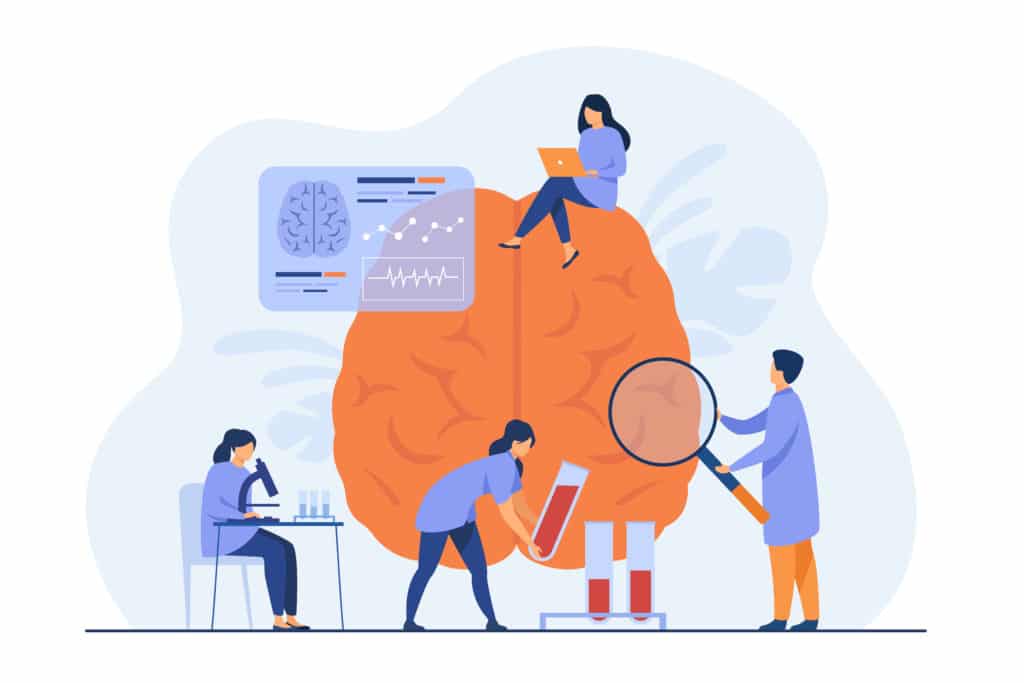
Your Ultimate Adaptogen Glossary
Millions of people worldwide are taking all-natural herbs that promise to enhance the way your body responds to stress and reduce its impacts on your health. With promises like a better libido, more mental energy, better sleep, and improved mood – it’s understandable why adaptogens are bursting with popularity.
Choosing which adaptogen to take can feel overwhelming. Our glossary takes out the guesswork and provides you with an in-depth look into each of the popular adaptogens, their mechanisms of action, and the science supporting their key benefits.
Remember that not everyone reacts the same to each adaptogen so always use trial and error to see what works best for you.
Your Adaptogen Glossary
- Astragalus root: helps reduce stress and aging by protecting the structures at the end of chromosomes called telomeres. The beneficial effects of astragalus are due to its polysaccharides and triterpenoid saponin compounds. Studies indicate that astragalus root has antioxidant, anti-inflammatory, and antiviral activitie. It has also been shown to exert protective effects on the heart , kidney, bones, and nervous system.
- Ashwagandha: Helps the body cope with daily stress and may be esepcially helpful for restoring high quality sleep. Ashwagandha has brain antioxidant effects and tranquilizing on the CNS due to its interactions with GABA receptors. Withanolides, which are found in the roots and leaves of ashwagandha are similar to steroids in their biological activities. A compound isolated from the leaves, called triethylene glycolwas, has been identified as giving ashwagandha it’s sleep-inducing effects. Studies indicate that Ashwagandha can help improve libido and sexual performance, relieve anxiety and stress, and improve sleep quality.
- Bacopa Monnieri: Helps to protect the brain, boosts memory, and enhances cognitive function. The active ingredients in Bacopa are believed to be dammarane types of triterpenoid saponins known as bacosides. Bacopa appears to modulate serotonin, affects levels of acetylcholine, and is a potent antioxidant. Studies show that this powerful herb protects the brain from stress by increasing levels of enzymes that help fight damage from free radicals.
- Cordyceps: A powerful fungi that helps restore balance to your hormones, reduce the impact of stress, and boost immune function. Studies show that cordyceps works by stimulating T helper cells, prolonging lymphocyte survival, enhancing TNF-alpha and interleukin 1 production, and increasing activity of natural killer cells.
- Chaga: Mushroom that’s great for supporting adrenal glands, strengthening immune system, and improving energy levels. The active ingredients that have been isolated from chaga include oxalic, gallic, protocatechuic and p-hydroxybenzoic acids. It may also have terpinoids with antidiabetic effects. Anti-inflammatory and pain-relieving properties of chaga may occur due to chaga’s inhibition of nitric oxide synthase (iNOS) and cyclooxygenase-2 (COX-2).
- Gingko Biloba: Help boost mood and mental energy while offering neuroprotective properties to the brain. It’s active components are ginkgo flavone glycosides which have an anti-inflammatory and anti-oxidant effect on the brain. Gingko Biloba increases circulation by inhibiting the platelet activating factor (PAF) receptor which dialtes vessels and makes bnlood less sticky. Its protects the brain from damage by neutralizing free radicals and even repairing damaged cells. Research has show that Ginkgo Biloba’s positive effects on the brain lead to increased energy, enhanced cognition, and improved memory and mood.
- Holy basil: Effective for promoting relaxation, reducing stress and anxiety, and boosting immune-functioning. The active ingredients are not totally understood but research has identified immune-boosting effects come from γ-aminobutyric acid pathway and stress-reliving effects coming from compounds called cerebrosides.
- Panax Ginseng: Helps boost memory, sexual function, fertility, and energy. The compound ginsenoside Rb1 improves acetylcholine release in the brain and ginseng saponins lowered total plasma cholesterol and triglyceride levels. Studies have also demonstrated a potent anti-inflmmatory effect of ginseng when taken post-exercise as evidence by reduced creatine kinase, beta-glucuronidase, and glucose-6-phosphate dehydrogenase.
- Reishi: Another mushroom powerhouse with medicinal benefits such as helping reduce the impacts of stress, and promoiting healthy sleep patterns. The active compounds include beta-glucan polysaccharides and triterpenes which have been shown to have immunoregulatory properties.
- Rhodiola rosea: Helps lower anxiety, reduces fatigue, and can even help combat feelings of depression. Rhodiola’s key compound is salidroside, which has been shown to demonstrate neuroprotective and anticancer benefits. Rhodiola compounds also show antioxidant activity and potential antidepressant effects, which may be due to inhibition of monoamine oxidases A and B, enzymes that metabolize brain chemicals like dopamine.
- Maca: Can help improve mood, libido, energy, regulate hormones, and help you adapt to stress. In women, studies suggest that maca improves sexual dysfunction, including menopause-related. Maca’s effects come from glucosinolates and tryptophan-derived compounds found in the pant.
- Schisandra: Reduce stress, anxiety, decrease sleep latency, and boosts sleep quality. Ligands isolated from schisandra have been shown to have potent anticancer, antiinflmmatory, estrogenic, and hepatoprotective qualities.
- Shiitake: Anti-inflammatory properties, rich in b vitamins, and helps boost immune system and cardiovascular health. A polysaccharide isolated from shiitake called lentinan is thought to be responsible for its beneficial effects. Studies have shown that it boosts immune functioning, and appears to be hepatoprotective, antiviral, and antifungal. Research is ongoing to determine shiitake’s use as an anticancer agent.
- Siberian ginseng: Can help boost energy and reduce the negative effects of mental fatigue and exhaustion. The active components include eleutherosides and polysaccharides which have neroprotective, hypoglycemic, and cell protecting effects. Studies show siberian ginseng may also improve endurance, help with cholestrol, and help regulate hormones.
- Tongkat Ali: Boosts mood, energy, testosterone levels and libido.It works by restoring normal testosterone levels by increasing the release of free testosterone from its binding hormone called globulin. Studies show that daily supplementation can increase testosterone, reduce cortisol, and reduce stress parameters
Adaptogen Stacks
You can combine adaptogens with one another or with other health-promoting compounds to increase the benefits. Take a look at your goals and feel free to try combining them when you’re ready. Popular stacks include Gingko Biloba + Bacopa Monneriri, Ashwagandha + Rhodiola Rosea (take Rhodiola Rosea in the morning and Ashwagandha later in the day for best effects), and Gotu Kola + Bacopa Monnieri. You will also regularly find ingredients like black pepper in certain adaptogens in order to aid in absorption.
Are Adaptogens Safe?
There are very few long-term studies examining adaptogens but most experts agree they are extremely safe to take at varying doses.
Do Adaptogens Interact with Other Medications?
Use caution when using adaptogens with the following classes of medications:
Prescription Sedatives, Sleep Aids, and Anti-Anxiety Medicines
Many herbs have calming and sedative properties so these effects can be enhanced when combined with prescription sedatives. Use with caution and note any side effects.
Thyroid Hormones
Ashwagandha is known to support and stimulate thyroid function, so it has the potential to bump up thyroid hormone levels if combined with thyroid medications. Have your levels tested to find a balance that works for you.
Diabetes Medications or Drugs that Lower Blood Sugar
Most adaptogen herbs, including reishi and rhodiola naturally help balance blood sugar. If you take these herbs along with glucose-lowering meds, it may cause levels to dip below normal. As with thyroid drugs, rather than avoiding herbs, consider working with your doctor to see if they might enable you to lower your dosage of drugs.
The Bottom Line
Stress can have extremely detrimental effects on your health. You may not be able to avoid the stressors in your life but you can help improve your body’s response to stress by supplementing with adaptogens. Try using some today that target your specific needs and see what works best for you! You deserve it.






